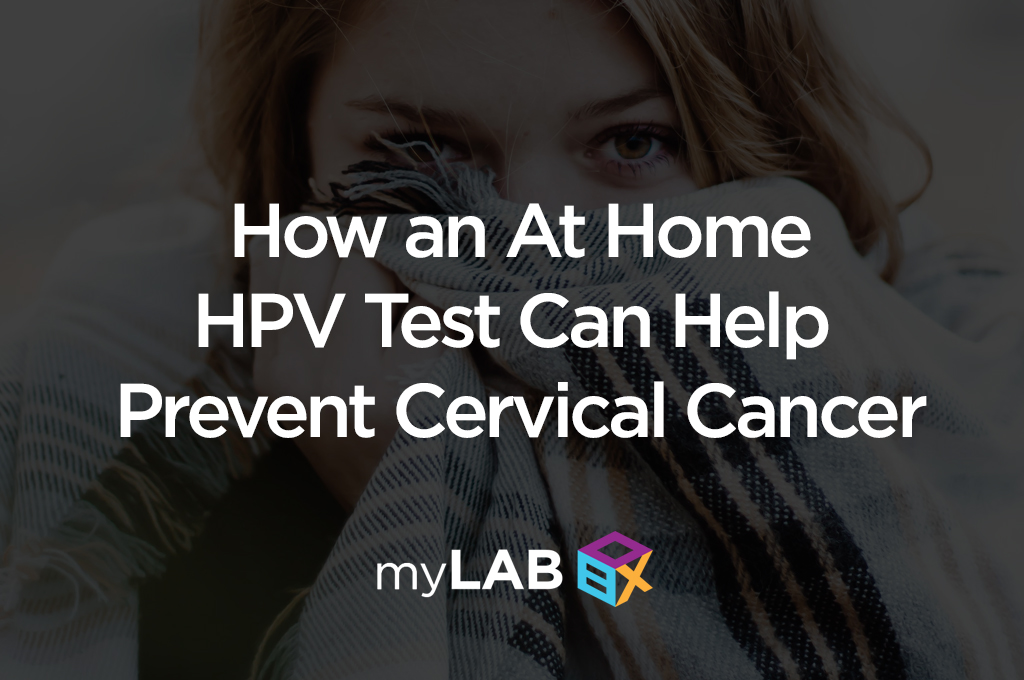At Home HPV Test Can Help Prevent Cervical Cancer

Cervical Health Awareness Month is the perfect time to discuss how an at home HPV test can help prevent cervical cancer. Many people don’t realize that there is a connection between the two. The good news is this is the most preventable female cancer. Despite this, about 12,000 women in the United States get cervical cancer every year, and almost 4,000 women die from it.
This, in large part, can be avoided by doing a simple at-home screening for Human Papillomavirus on a regular basis.
What is HPV?
Simply put, Human Papillomavirus (HPV) is the most common sexually transmitted infection in the United States. In fact, there are an estimated 14 million new infections each year. Nearly half of Americans between the ages of 18 and 59 have genital HPV. The problem is that many of these people do not know that they are infected. Since the virus can spread through skin-to-skin contact in addition to vaginal, oral and anal sex, the number of infections continues to grow.
The Link Between Genital HPV and Cervical Cancer
There are approximately 40 types of genital HPV, but about 14 of these are considered to be more serious. These strains of the infection, including HPV-16 and HPV-18, are called “high-risk HPV” (hrHPV). About one in five women and one in four men have hrHPV.
While pap smears have traditionally been used to detect these hrHPV types in women, recent FDA-approved HPV genotyping tests are now used as a primary cervical cancer screening. These tests detect HPV-16 and HPV-18 types in addition to 12 other high-risk types. Luckily, myLAB Box’s at home HPV test can be used to detect these infections.
The trouble is that HPV typically does not show symptoms until the virus is quite advanced. For this reason, it is important for some women to regularly be screened for this infection. This is true even if they are not experiencing symptoms. Buy why did we only mention women? Well, let’s take a look at who should (and should not) be tested for this infection.
Who Should (and Shouldn’t) Test for HPV?
-
Women Under 30 Years of Age
It is not recommended that women under 30 test for HPV. For these women, the immune system usually clears hrHPV infections in less than two years. By testing, they may go through unneeded treatment and unnecessary expenses. As a preventative measure against the infection, the Centers for Disease Control and Prevention (CDC) recommend that these women be vaccinated against infection.
-
Women Who Are 30+ Years of Age
It is highly recommended that women who are 30 years of age and older regularly order an at home HPV test. At this age, hrHPV infections require a more careful eye. If these women are not tested and these abnormal cells are left untreated, it can result in pre-cancerous changes to the cervix and cervical cancer. This can be serious and even potentially life-threatening.
-
Men of All Ages
The CDC does not recommend that men of any age be tested for HPV. This is because male hrHPV tests are not yet as reliable or accurate as these tests for females. Even if men do test positive for hrHPV, there are not yet any treatments available for them.
How to Use an At Home HPV Test
Now that we have established the importance of an at home HPV test for women who are 30 years of age or older, it will benefit you to know how simple the test is to take. Let’s review how the process works:
- Step 1: Order: Order your chosen test(s) online with free shipping. In addition to HPV, myLAB Box tests for all of the most common infections, including syphilis, HIV, chlamydia and gonorrhea, Hepatitis C and more.
- Step 2: Test: Your test will arrive in discreet packaging. You can take your test at any time and from any place you choose. It will only take about five minutes!
- Step 3: Results: You will receive an email when your results are ready. These results will be lab-certified, just like the ones from any medical facility. You can check these results privately from a secure portal. Only you will have access to them.
- Follow-Up: Should you test positive, you are entitled to a phone consultation with a physician. If you live in a state that allows telemedicine (and most do), your physician can even prescribe your treatment.
Testing and treatments for hrHPV on non-cervical sites such as the mouth and throat are not available. Luckily, for many women, that is not the case for genital hrHPV. This infection is curable as long as it is detected. You can take a big step in preventing the possibility of cervical cancer simply by ordering an at home HPV test!
Popular Tests

Total Box
14 Panel STD Test
In Stock – Free Shipping
$369 – $399
